Findis - Tumblr Posts
Maedhros & Fingolfin - Ages
Fëanor was born in 1169th Year of the Trees. Assuming the maturity age of elves to be given as 100 Sun Years, and one Valian Year or yén to be about 10 of the sun years, then we get an adult Fëanor at 1179 YT. It’s said that he married young - enough to be remarked upon - so let’s say his wedding to Nerdanel was in 1178 - when he had not yet come of age.
Finwë himself remarried in 1185 YT. And Fingolfin was born in 1190. But it was Findis who was Finwë and Indis’ first child, so that means she was born between 1185 and 1190. So I think her to be born in 1186 YT.
We don’t see much of Fëanor’s attitude towards Indis in canon, but in a culture where there exist re-embodiment and monogamy, it must have hurt to see another take the place of his beloved albeit absent mother. So, Findis is born and someone comments that there’s another heir in the royal line and Fëanor is not amused. Later, much later, he himself would champion Findis’ claim over that of Fingolfin to be next after his line, but not then. Then he is miffed and aware of what having half-siblings would mean. Fëanor thus moves to pre-empt any doubts about the line of succession and plans a child before a brother could be born and named Nelyafinwë. Therefore, Maedhros is born the very next yén, in 1187 YT, and indisputably the third of Finwë. Nelyafinwë.
Now, hang on before you invoke the “eldest of the house of Finwë here” line that Maedhros says to Fingolfin before foisting off the crown on the latter. I know the difference between ‘eldest’ (for persons) and 'oldest’ (for persons and things), but the word 'elder’ is used to denote seniority of rank sometimes. So let me appropriate canon and claim that Maedhros actually meant eldest in generational rank. For a race of immortal elves who woke up at Cuiviénen, I think degree of removal from the first-generation elves (whom I call the 'Woke Elves’ - pun intended) will be important. So Fingolfin being the son of High King Finwë, rather than the grandson - and so further removed - that is Maedhros, he can claim a higher rank. Thus the 'eldest’ tag given to Fingolfin. But Maedhros is still the oldest (and hence the proviso/qualifying line: “and not the least wise” as said to Fingolfin).
Just imagine the implications now. Maedhros is closer in age to his father than he is to most of his brothers - being not even 20 yéni apart. And Findis and Fingolfin are born within few yéni of their own nephew. Maedhros is more of an elder brother to Fingolfin than Fëanor ever is. Indis is like a second mother to Maedhros rather than a grandmother. Even Finwë he sees more as a father because Fëanor is young and a better friend/brother to Maedhros than a father. Nerdanel, who’s actually older than Fëanor - both in age and generation, is the authority in their house and the responsible adult. So Maedhros grows up solely as his mother’s son and hence is the most reasonable of all the Fëanorions. By the time Maglor is born, Fëanor has wised up a bit and so, it’s Maglor who’s his first true experience at parenting. But Maedhros is still the one closest to their father, as Fëanor sees in him the true brother he does not have in Fingolfin. This obviously leads to jealousy whenever Fingolfin and Maedhros hang out.
Meanwhile, Findis is adored by everyone. Even Fëanor, who has mellowed out a bit after having secured his line and favours her just to spite Fingolfin. (Fingolfin who is the spitting image of Finwë while Fëanor takes after his mother more. The mother that his father actually replaced - would he do the same with Fëanor?) Findis herself prefers the company of Nerdanel. Her own mother is nice and proper, but Mahtaniel is more fascinating. And so, Findis and Maedhros grow up together, with Maedhros considering her the sister he does not will not have. This leads to Findis being closer to the Fëanorians (and would’ve followed them to Arda too, if Nerdanel hadn’t asked her to stay).
And when a dead Fëanor will learn that Finarfin has titled himself High King in Aman, he will curse up a storm because Findis stayed (the traitor!) and the crown should’ve been hers by right! And also because Fëanor did not propagate women’s rights so loudly and vehemently if one of his half-brother was going to be king anyway.
Don’t ask what he did when Maedhros handed over his own Kingship to Fingolfin. Because the tale has been banned by Mandos. “Not even the echo of your lamentation” indeed!
Findis vs. Finarfin
Y'know, if I was smarter and able to write politics with a modicum of competency, I would totally delve into an Aman Noldorin court intrigue au where Findis plots to overthrow Finarfin. Because before Finwe died, the High King was discussing implementing an absolute primogeniture law to quell the tension between Feanor and Fingolfin. But the King's council could not come to an agreement before Feanor was exiled, so the matter was left abandoned.
But Findis was aware and slowly amassing political favour for the law. When Finarfin is appointed High King by the Valar, Findis is not pleased. She had been given hope of power—no matter how distant it might be—and the desire for the throne could only grow from there. And though most of the Noldor that stayed are largely Valar neutral, there is some grumbling about their handling of the matters of those who left. The Noldor in Beleriand are still kin after all, and to have their return forbidden is a bitter pill to swallow. Findis would exploit exactly this dissent. While Finarfin is happy to be under the Valar's rule, Findis would urge the people to not forget their brothers and sisters in Arda, waging war against one of the Valar's own. Thus, two factions would develop at the Noldorin court: the Valar abiding and the Valar critical, locked in a subtle battle for the crown.
The story would explore this struggle... if I could write it.
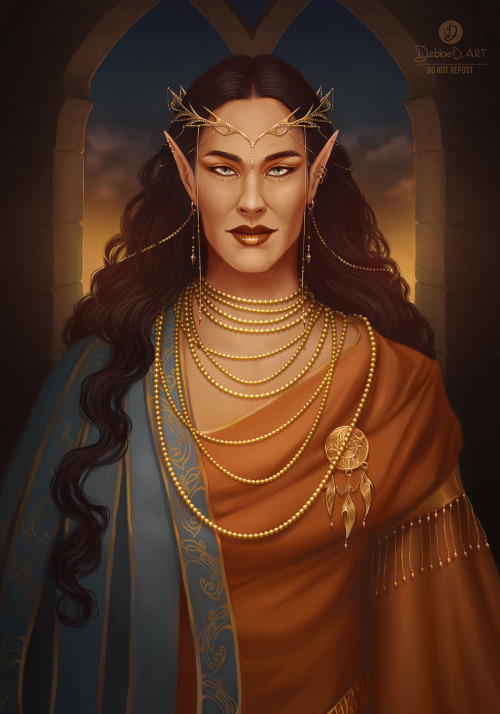
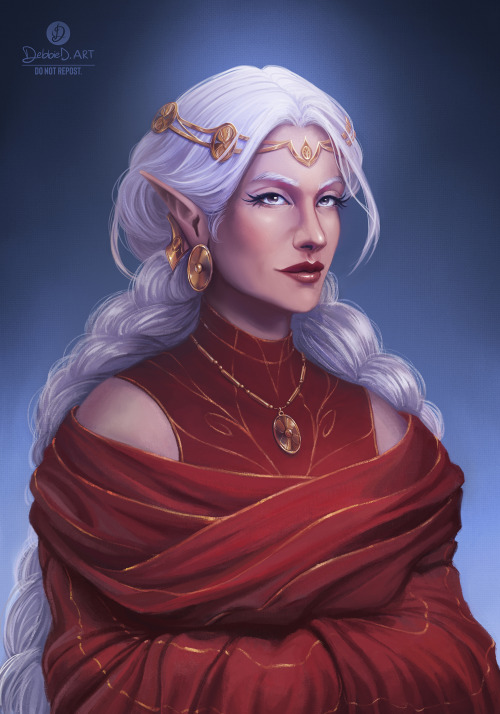
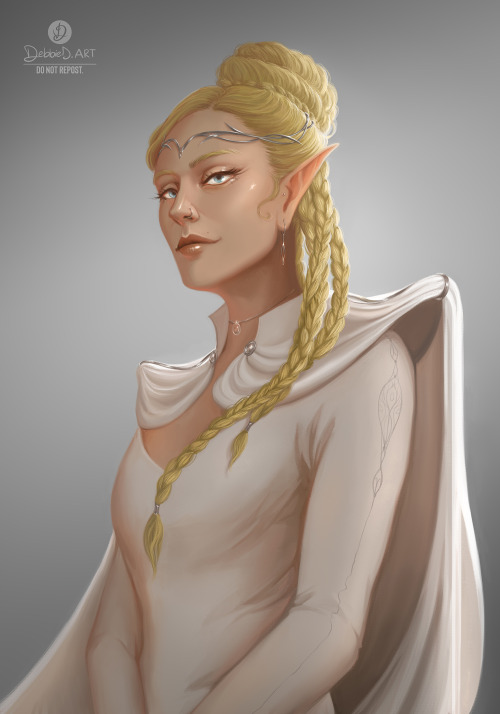
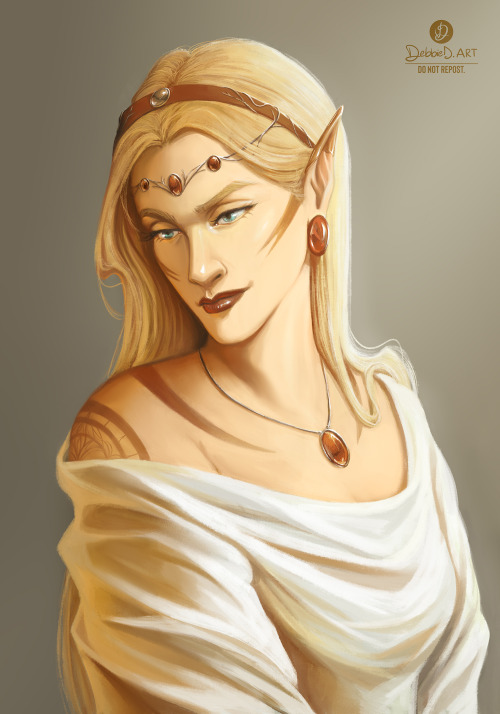
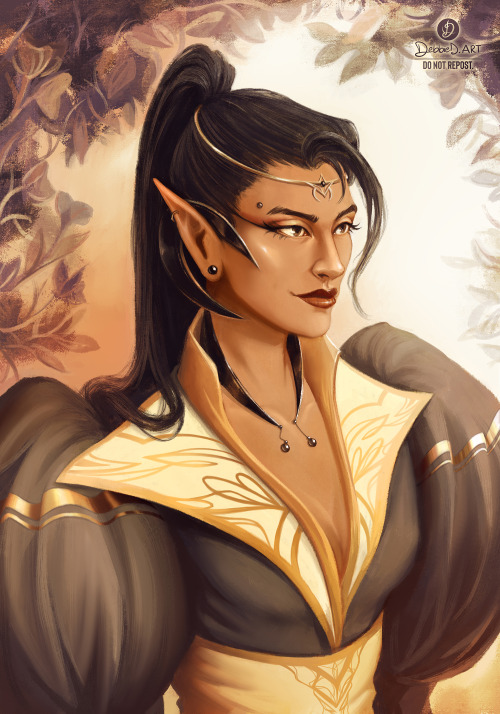
House of Finwë ~
Finwë - Miriel - Indis - Findis - Lalwen
// prints!
fëanorians: 1 - 2 - 3 nolofinwëans: 1 - 2 - 3 arafinwëans: 1 - 2 - 3